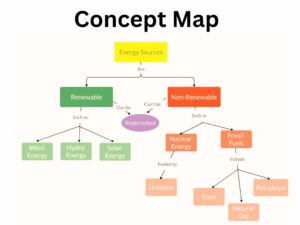Have you ever faced a complex problem or decision and felt overwhelmed?
Life constantly presents us with situations that require careful thought and analysis. However, not all thinking processes are the same. Two crucial types of thinking that often get confused are analytical thinking and critical thinking. While related, they are distinct skills with different applications.
This post aims to dive deep into the worlds of analytical and critical thinking. We’ll explore their definitions, key differences, and real-world applications.
By understanding these thinking styles, you’ll be better equipped to approach problems, make informed decisions, and communicate your thoughts effectively.
What is Analytical Thinking?
Analytical thinking is the process of breaking down complex information or problems into smaller parts. It involves using logic, reason, and data to understand the underlying issues and relationships between different components. Analytical thinking is like taking apart a complex machine.
You carefully examine each piece, understand how it works, and how it relates to the other parts. This methodical approach allows you to gain a deeper understanding of the whole system.
Key characteristics of analytical thinking include:
- Breaking things down: Analytical thinkers deconstruct complex problems or situations into manageable parts.
- Data-driven: They rely on facts, figures, and objective data to inform their analysis.
- Logical reasoning: Analytical thinkers use deductive and inductive logic to draw conclusions and make connections.
- Objectivity: They strive to remove personal biases and emotions from their analysis, focusing on impartial evaluation.
What is Critical Thinking?
Critical thinking is the process of analyzing information, ideas, and arguments with a skeptical and evaluative mindset. It involves questioning assumptions, considering different perspectives, and forming well-reasoned judgments. Critical thinking is like being a detective. You gather clues, examine evidence, and question statements to uncover the truth. You look for inconsistencies, biases, and flaws in reasoning before reaching a conclusion.
Key characteristics of critical thinking include:
- Questioning assumptions: Critical thinkers challenge widely accepted beliefs and question the status quo.
- Considering multiple perspectives: They explore different viewpoints and angles before forming an opinion.
- Evaluating evidence: Critical thinkers assess the credibility, relevance, and sufficiency of information before making judgments.
- Drawing logical conclusions: They use sound reasoning and argumentation to arrive at well-supported conclusions.
Key Differences Between Analytical and Critical Thinking
While analytical and critical thinking share some similarities, they are distinct processes with distinct goals. Here are the key differences:
| Analytical Thinking | Critical Thinking |
|---|---|
| Focuses on breaking down complex information | Focuses on evaluating information and arguments |
| Relies heavily on data, facts, and logical reasoning | Considers multiple perspectives and questions assumptions |
| Aims to understand the underlying components and relationships | Aims to form well-reasoned judgments and conclusions |
| Strives for objectivity and impartiality | Encourages skepticism and questioning of accepted norms |
| Often used in problem-solving and decision-making processes | Often used in evaluating arguments, theories, and beliefs |
To illustrate the difference, consider the following example:
Imagine you’re tasked with analyzing a company’s financial performance. Analytical thinking would involve breaking down the financial statements, identifying trends and patterns, and understanding the relationships between different financial metrics.
Critical thinking, on the other hand, would involve questioning the assumptions behind the financial data, considering alternative interpretations, and evaluating the credibility of the information sources.
Both analytical and critical thinking are valuable skills, and they often work in tandem. Analytical thinking provides the foundation for understanding complex information, while critical thinking ensures that the analysis is rigorous, objective, and well-reasoned.
Real-World Applications
Analytical and critical thinking are essential skills that have numerous real-world applications across various domains:
Analytical Thinking Applications
- Business and Finance: Analyzing financial data, market trends, and operational processes to make informed decisions.
- Science and Research: Breaking down complex scientific problems, identifying patterns, and understanding relationships between variables.
- Engineering and Technology: Analyzing system requirements, designing solutions, and troubleshooting technical issues.
- Data Analysis: Extracting insights and patterns from large datasets to inform decision-making.
Critical Thinking Applications
- Academic Research: Evaluating theories, arguments, and research methodologies in scholarly work.
- Law and Policymaking: Critically analyzing legal arguments, precedents, and proposed policies.
- Media and Communication: Assessing the credibility of information sources and identifying biases or logical fallacies in arguments.
- Personal Decision-Making: Evaluating options, considering multiple perspectives, and making well-informed choices in various aspects of life.
Both analytical and critical thinking are crucial in today’s complex and information-rich world. They enable us to navigate challenges, solve problems, and make well-informed decisions in our personal and professional lives.
Developing Analytical and Critical Thinking Skills
Like any skill, analytical and critical thinking can be developed and improved with practice. Here are some strategies to enhance these thinking abilities:
Strategies for Developing Analytical Thinking
- Break down complex problems: Practice breaking down complex situations or problems into smaller, manageable parts.
- Gather and analyze data: Seek out relevant data, facts, and information to inform your analysis.
- Use visual aids: Create diagrams, charts, or mind maps to represent relationships and connections between different components.
- Practice logical reasoning: Engage in activities that require deductive and inductive reasoning, such as puzzles or coding challenges.
Strategies for Developing Critical Thinking
- Question assumptions: Actively challenge your own assumptions and the assumptions of others.
- Consider alternative perspectives: Intentionally explore different viewpoints and perspectives on a given issue.
- Evaluate evidence: Critically assess the credibility, relevance, and sufficiency of information and evidence presented.
- Practice argument analysis: Analyze the structure, logic, and reasoning of arguments in articles, debates, or discussions.
Developing analytical and critical thinking skills is an ongoing process that requires consistent practice and a commitment to intellectual growth. Engage in activities that challenge your thinking, seek out diverse perspectives, and continuously strive to improve your reasoning abilities.
Analytical and Critical Thinking Quiz
TL;DR
- Analytical thinking involves breaking down complex information or problems into smaller parts, using logic, data, and reasoning to understand the underlying components and relationships.
- Critical thinking involves analyzing information, ideas, and arguments with a skeptical and evaluative mindset, questioning assumptions, considering multiple perspectives, and forming well-reasoned judgments.
- The key difference is that analytical thinking focuses on understanding the components and relationships, while critical thinking focuses on evaluating information and arguments.
- Both skills are essential for problem-solving, decision-making, and navigating the complexities of modern life.
- Developing analytical and critical thinking skills requires practice, engagement with diverse perspectives, and a commitment to intellectual growth.
Q&A
Q: Can you provide a simple example to illustrate the difference between analytical and critical thinking?
A: Certainly! Let’s consider the process of buying a new car. Analytical thinking would involve breaking down the different features, specifications, and costs of various car models. You would analyze the data and information to understand how each component (engine, fuel efficiency, safety features, etc.) contributes to the overall performance and value of the car. Critical thinking, on the other hand, would involve evaluating the credibility of the information sources (e.g., reviews, marketing materials), questioning assumptions about your needs or preferences, and considering alternative transportation options or perspectives on car ownership.
Q: Is one type of thinking more important than the other?
A: Both analytical and critical thinking are essential skills, and their importance depends on the specific context and task at hand. Analytical thinking is crucial for understanding complex systems, solving technical problems, and making data-driven decisions. Critical thinking is vital for evaluating arguments, theories, and beliefs, as well as making well-reasoned judgments in various aspects of life. In many situations, both types of thinking are needed to arrive at the best possible solution or decision.
Q: Can you provide some tips for improving analytical and critical thinking skills simultaneously?
A: Absolutely! Here are some tips that can help develop both analytical and critical thinking skills:
- Learn about cognitive biases: Understand common cognitive biases that can influence our thinking, such as confirmation bias, anchoring bias, and the availability heuristic. Being aware of these biases can help you think more objectively and critically.
- Practice active reading and listening: When reading or listening to information, actively question the assumptions, consider alternative perspectives, and evaluate the evidence presented.
- Engage in discussions and debates: Participate in constructive discussions or debates on complex topics. This practice will challenge you to analyze different viewpoints, support your arguments with evidence, and think critically.
- Seek out diverse perspectives: Expose yourself to different perspectives, cultures, and worldviews. This can broaden your understanding and challenge your assumptions.
- Learn new skills or subjects: Learning new skills or subjects requires both analytical and critical thinking. You need to break down complex concepts while evaluating the information and methods presented.
Remember, developing strong analytical and critical thinking skills is an ongoing process that requires consistent practice and a mindset of lifelong learning.





